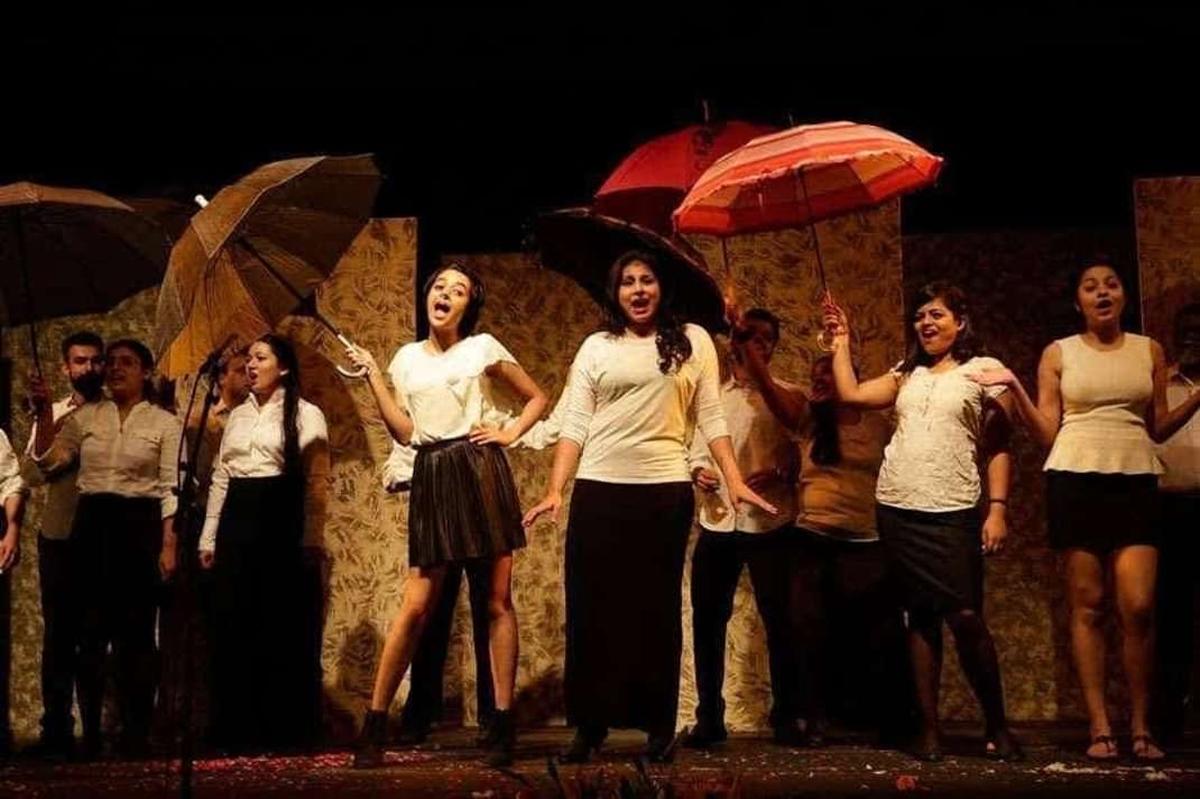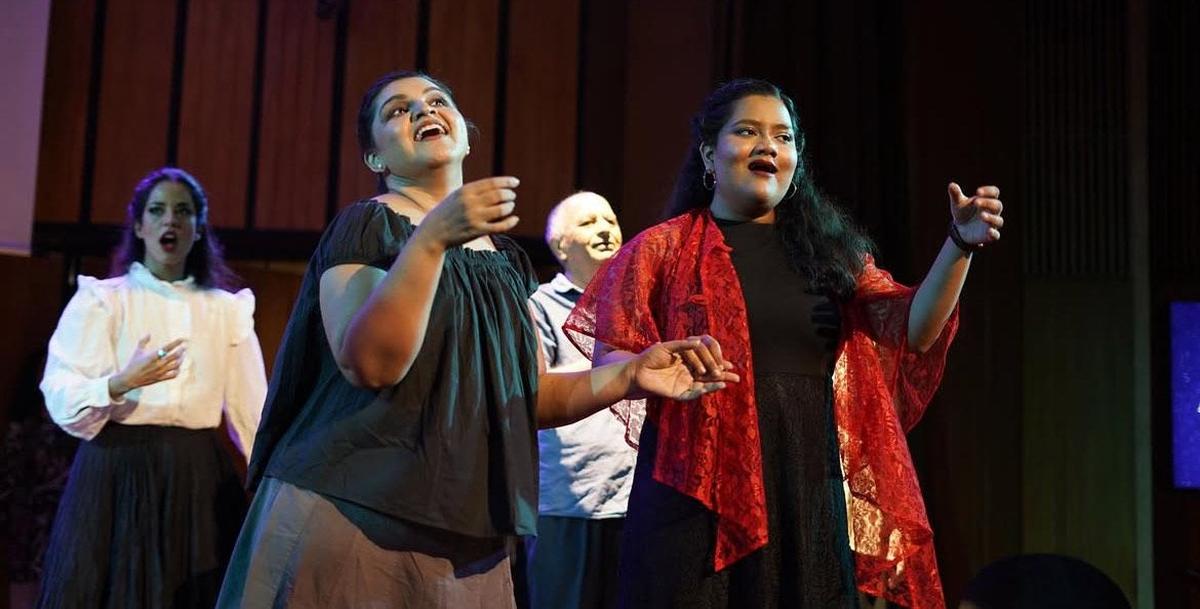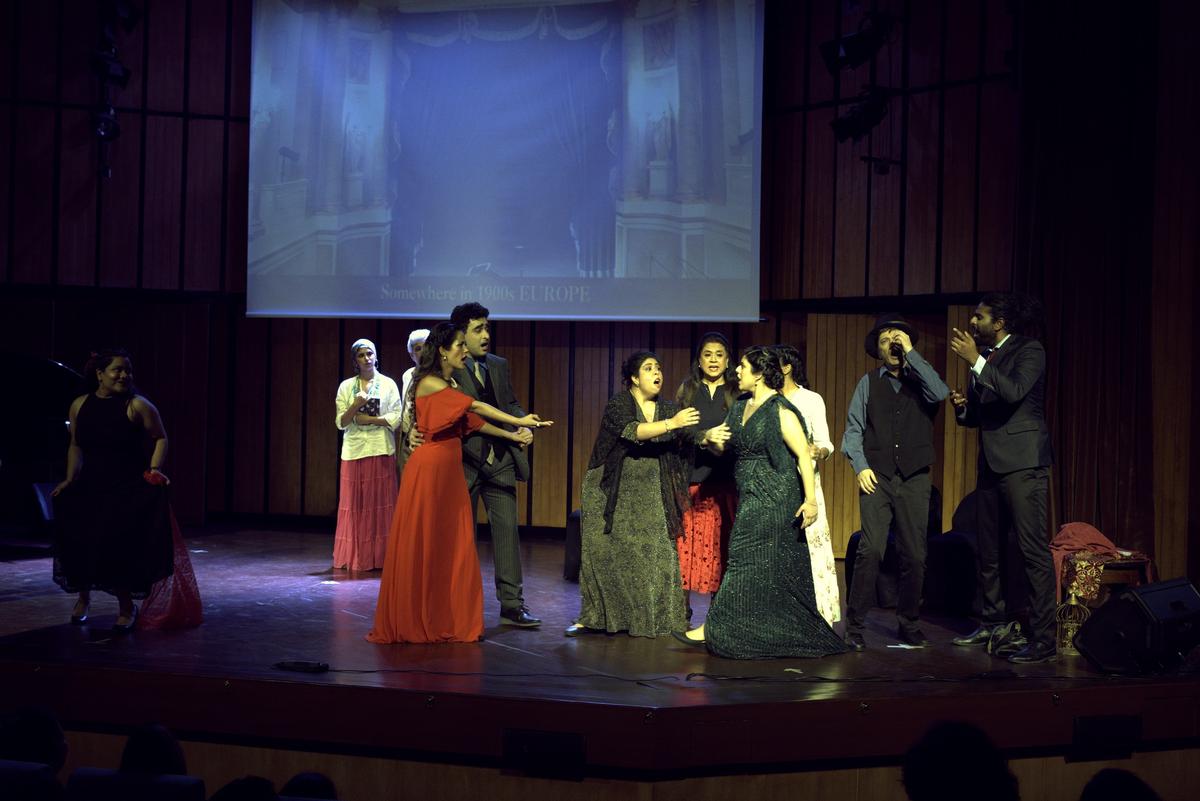With the rising demand for quality music education in India, if one happened to be interested in Western classical singing but didn’t quite know where to start, a quick search or word of mouth would bring them to Situ Singh Buehler. On the internet, while not much is written about her life, one finds a plethora of videos, news articles, recital posts, reviews, and individual blog pages of established Indian artistes who cite her as their teacher. They would have been told that she was the best India had, was selective, a hard task master, extremely passionate, and driven as a teacher. After working with her, many students became international performing arts professionals, and others are among well-known singing coaches in Delhi and across India today.
On meeting her, you would be immediately struck by her elegance and gentle disposition. As you got to know her, you would have realised that she was equally a loving friend, a lifelong mentor, and someone who believed in the good that the universe holds within. She had an enduring vision for independent artistes in India, to bring about tangible changes at the public policy level.

From a performance by the students of Situ Singh Buehler
| Photo Credit:
Special Arrangement
I first heard about Situ when I was merely nine years old. My choir conductor at the time happened to be her student. During vocal training, she would affirm lovingly, “This is what Situ taught me….” While I wouldn’t meet her until half a decade later, I had already been influenced by her technique and a glimpse of her magnanimous presence. Losing her early this year has left a gaping hole in the hearts of those who have admired and respected her. But her contribution to music education and performing arts in India will resonate for years to come. She is single-handedly responsible for opening avenues for multiple cultural exchanges, providing opportunities for young Indian talents to enter rooms none had before.
Born in 1946, Situ was the second of four children and was initially named Devika by her mother. Her household was extremely musical, with parents who loved Western classical music and encouraged the arts sector in Independent India as active patrons. Her father, Amarjit Singh, a Cambridge-educated scholar, was the founding member of the Delhi Music Society. Throughout her childhood, Situ’s home was filled with melodies, ranging from bhajans to Beethoven. Musical visitors from across the globe would frequent their house in Delhi, and her interest was piqued by simply engaging by listening. But as she would often tell me, her journey initially began with Hindustani classical at a very young age. During the lessons, she would struggle to pay attention and was often reprimanded by her teacher then, who said she didn’t have the gift. Her voice was deemed unsuitable for classical music, and she grew weary of the training.

Many of her students have become professional artists too
| Photo Credit:
Special Arrangement
At 23, when she took up voice lessons under Margaritta Schaak Koellruetter at Max Mueller Bhavan, Delhi, she discovered her love for Western classical singing. She was talented and took to this style of music without hesitation. Her voice, as her teacher then would say, was fully developed for operatic training. Her repertoire spanned sacred music, German lieder, arias, and English songs. She began performing in recitals in India, often through the Max Mueller Bhavan. It was here she met Joachim Buehler, a German diplomat posted in India. He was a pianist, conductor of the Bombay Chamber Orchestra, and her accompanist during recitals. They fell in love, got married, with her taking on the role of the diplomat’s wife.
Situ was determined, and her journey began as she travelled across the world with her husband, she continued her education in music, performing across Europe, the U.S., Southeast Asia, and Australia. She shared stages with multiple Hindustani stalwarts, singing with Pt. Ravi Shankar, Ustad Sultan Khan, and Pt. Hariprasad Chaurasiya. She recalled a very young Anoushka Shankar being in awe of her operatic voice during a concert with Pt. Shankar. She performed as a soloist for multiple global orchestras. In her beautiful Panchsheel Park home, her mantelpiece was crowded with photographs. An old brochure on display mentions that she was a soloist for the Paranjyoti Chorus and the Bombay Chamber Orchestra, a pioneering moment in India’s Western classical scene.

Situ Singh Buehler provided opportunities for young Indian talents to foray into this genre.
| Photo Credit:
Special Arrangement
She moved back to India permanently in the 2000s and started her journey as an opera singer and vocal coach in Delhi, carrying years of experience under her belt. Through her endeavour, she set the structure for the Neemrana Music Foundation, with the late Francis Wacziarg from the Neemrana Group of Hotels. This brought quality performances of opera to India, including renowned renditions of The Magic Flute, The Fakir of Benares, Romeo and Juliet, and many others, which have been loved and cherished by Delhi audiences. In 2016, she founded the Lyric Ensemble of Delhi, a group consisting of her students, specialising in Broadway, jazz, and opera. The group has organised several housefull shows under her tutelage, and the model of learning-to-perform has helped many artistes gain a foothold on the stage. One of her students, Darwin Prakash, has recently made history as the first Indian to compete in Operalia, an International Opera Festival. Kanchana Jaishankar, a contralto, is preparing to perform with the Glyndebourne Opera Festival. Ankur Dang has received a scholarship to study at the Royal Northern College of Music, United Kingdom, where she also premiered her first opera production as a dedication to Buehler. Several others such as Ashwati Parameshwar, Nilima Buch, Sparsh Bajpai, Meera Arora, and Riddhiman Dutta are carrying the baton for Western classical teaching in India.
Films such as Taare Zameen Par speak about how all that a dedicated learner needs is an equally dedicated teacher; one who satiates the student’s hunger to learn, who sees success in their victories. As artistes, we cherish this relationship. For us, her family and her admirers, she will live on in each musical note.
Published – September 04, 2025 07:36 pm IST
